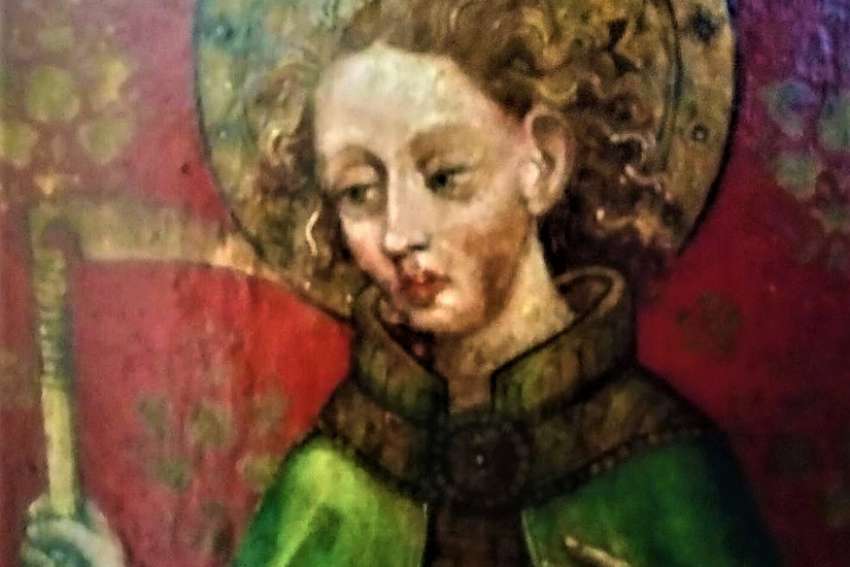He was to be placed on his cart (one of his few possessions) guided by his two bull calves, which were to wander wherever they pleased. When the animals stopped, that’s where he was to be buried. He died just as predicted. During the funeral procession, twice the calves paused and water springs appeared each time. The pair finally stopped near the church in Bawburgh, Norfolk, and again a spring appeared.
Every year on May 30, his feast day, there are processions to Bawburgh and the sites of the springs that became healing wells.
In this spring of 2021, a few prayers to St. Walstan would be welcome, not only for the farmers who have struggled during this pandemic, but for Earth itself.
On pages 8-9 of this issue, we offer a glimpse into the kind of efforts local Catholic farmers are making as stewards of creation and providers of healthy, natural food for our communities. As another growing season dawns, we would do well to pause and reflect on the importance of their work that is vital to our very existence.
“Our concern is to see that the environment is cleaner, purer and preserved, and to take care of nature so that it takes care of us,” Pope Francis said in a video message commemorating Earth Day on April 22.
The farmers we feature in Michael Swan’s story are taking the Pope’s words to heart in very real ways, and for that we thank them. And the good news is that we don’t have to be farmers to be good stewards of creation.
One of the offshoots of the COVID-19 tragedy is that we have seen what can happen environmentally when much of the world is put in lockdown mode. According to scientific studies, carbon emissions have fallen, water and air quality has improved, even the livelihoods of fish and wildlife are on the upswing.
Pandemics are not the way we want to save our common home and lockdown is no way to live. But there are solutions. Waste reduction, recycling, using biodegradables, supporting green building initiatives, planting a tree … they all help reduce our carbon footprint and help create a sustainable planet for the next generation. That is not just a pipe dream … it’s our duty.
The farmers we talked to understand their role in being good stewards and partners with nature.
“If we don’t figure out a way to grow food properly, in a more stewardship-centred way with the land, then we’re going to put ourselves in a precarious position environmentally,” Rory O’Neill of Grange Farms told The Register.
As spring unfolds into summer, as our lives continue to adjust in the wake of COVID, lets make sure any so-called “return to normal” includes a commitment to the well-being of this planet.


